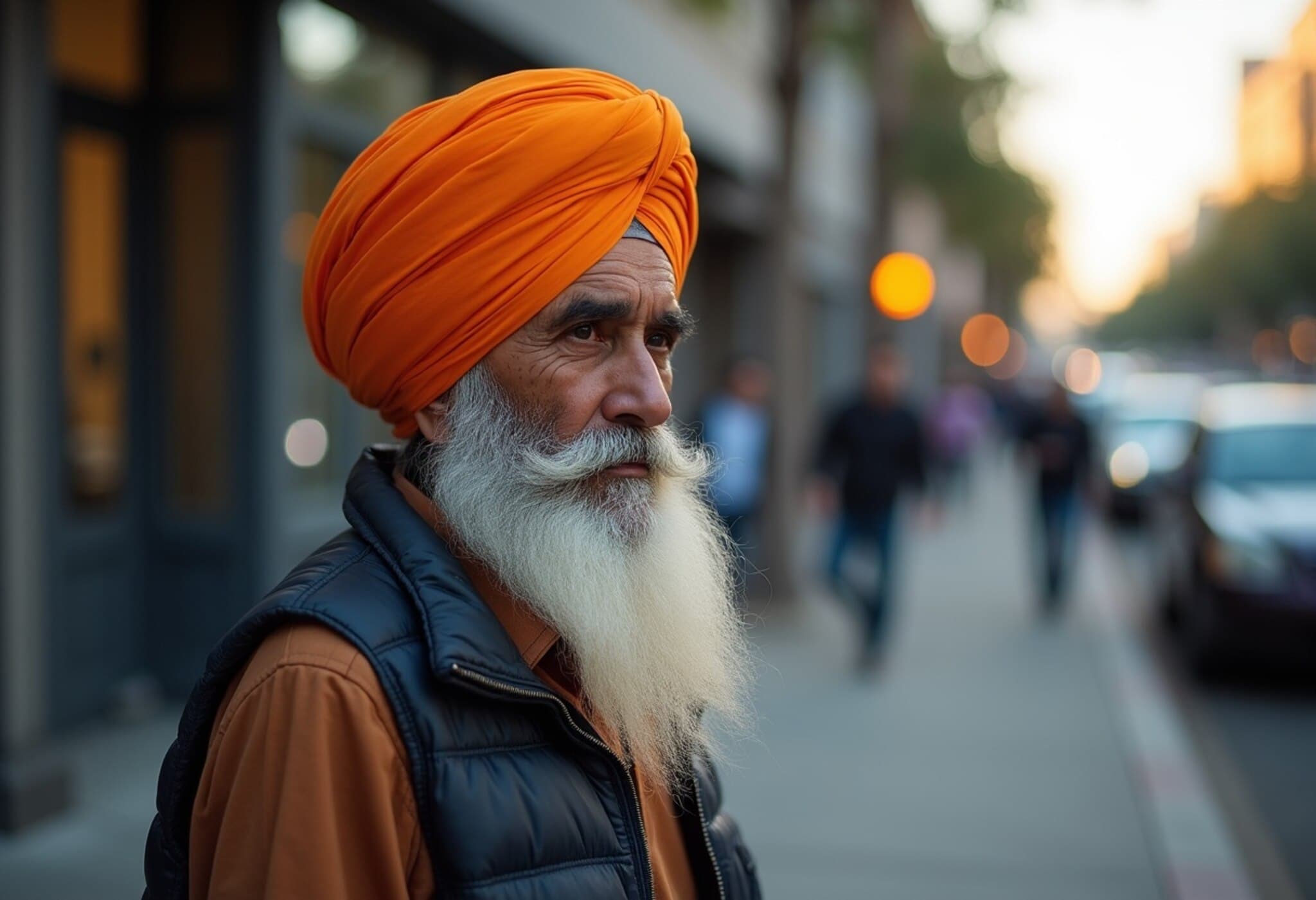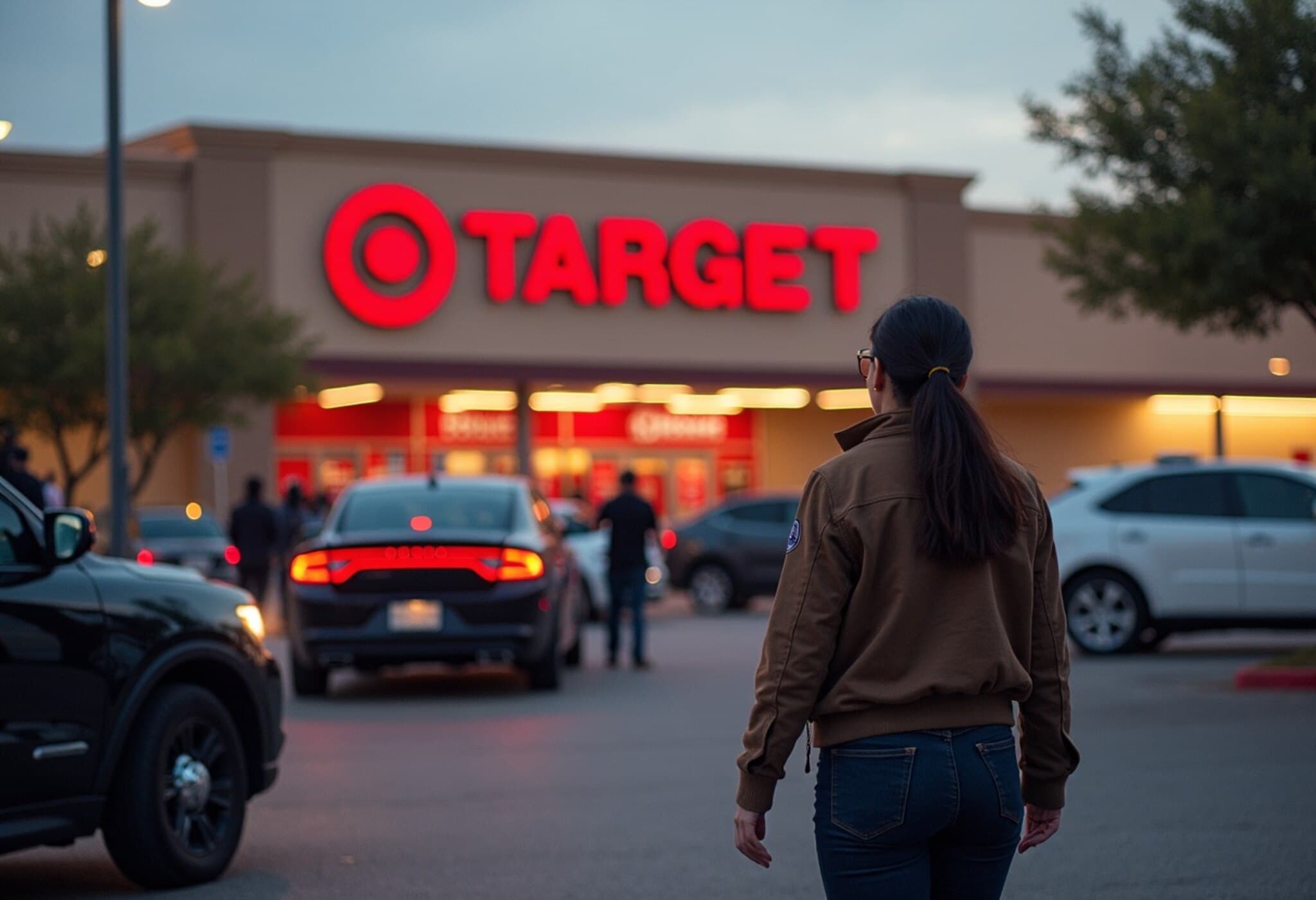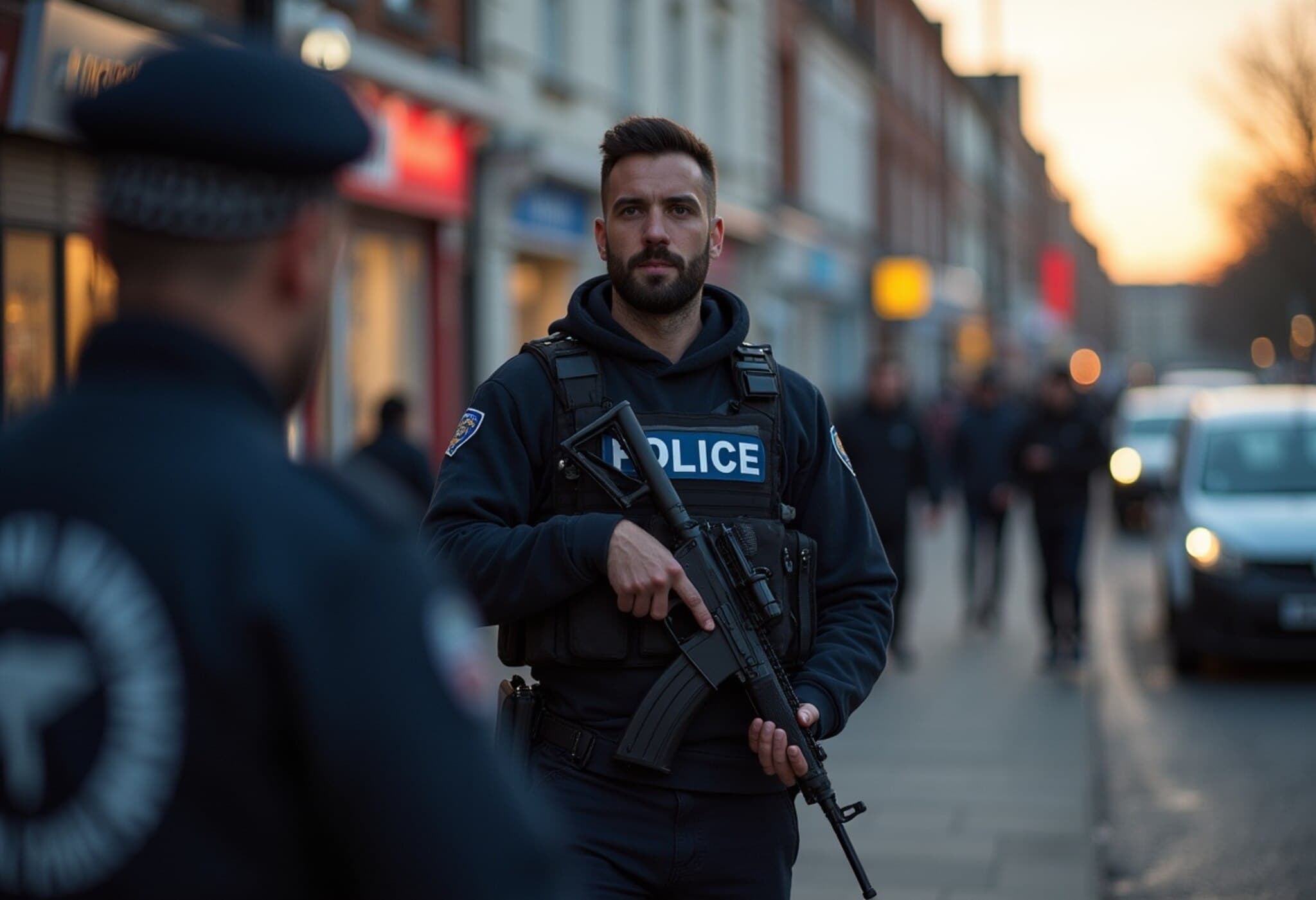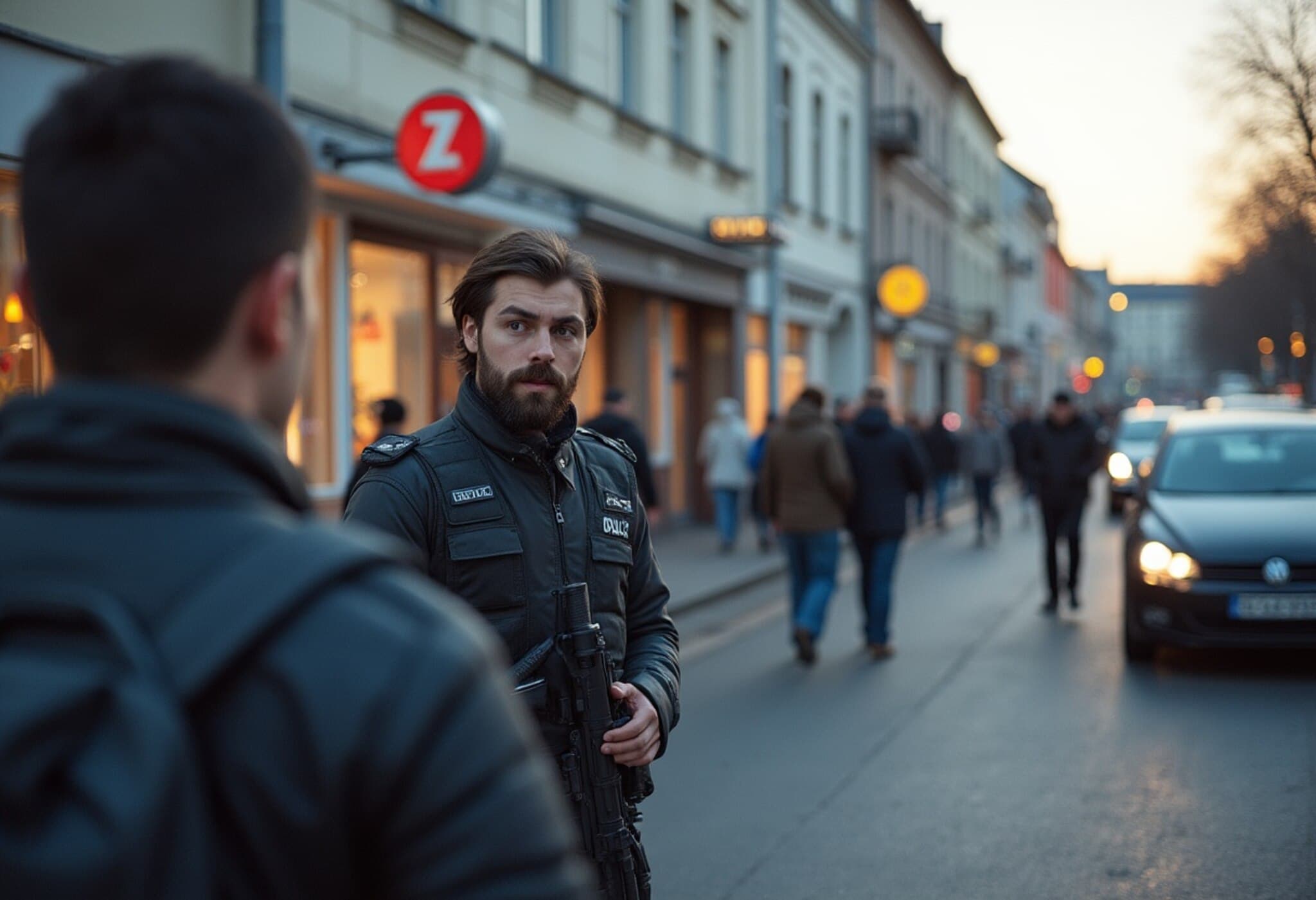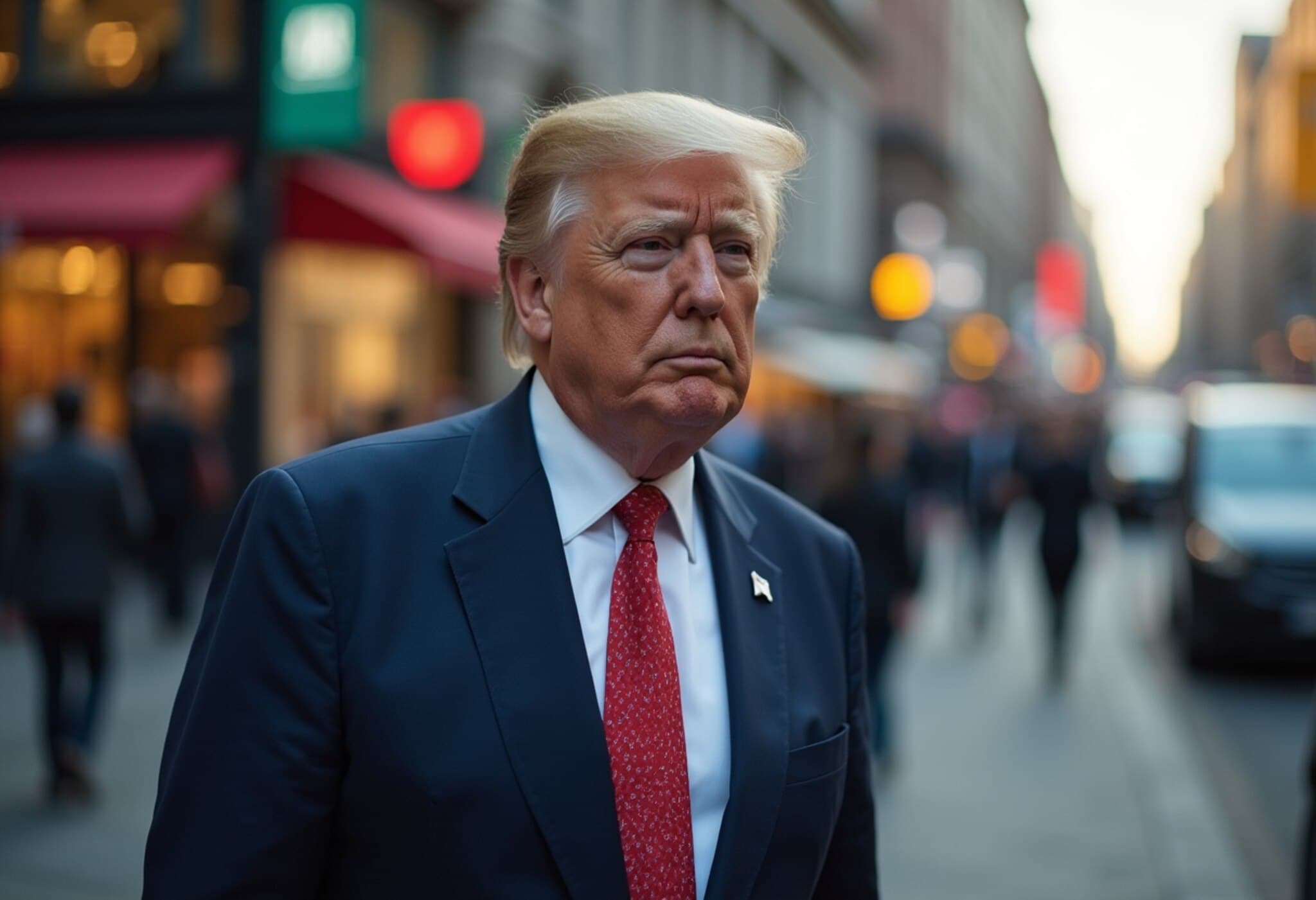Violent Assault on Elderly Sikh Man Sparks Outrage in North Hollywood
In a chilling incident that has shaken the North Hollywood community, 70-year-old Harpal Singh was viciously attacked with a golf club on August 4 while walking to his local gurdwara. This unprovoked assault left Singh critically injured, and he remains in an induced coma following multiple surgeries. Surveillance footage capturing the attack and the fleeing suspect has since circulated, heightening fears of a hate crime within the Sikh community.
Attack Details and Community Response
The attack took place around 3:15 PM outside a 7-Eleven near Saticoy Street and Lankershim Boulevard. Witnesses report that a man bicycling approached Mr. Singh and, without any apparent provocation, savagely struck him with a golf club before abandoning the weapon at the scene. Singh was found bleeding profusely and disoriented on the sidewalk, the weapon lying nearby, a grim testament to the brutality of the encounter.
"He was almost dead," said Dr. Gurdial Singh Randhawa, Harpal’s brother. "How God saved him is beyond us. He has undergone three surgeries for broken facial bones and brain bleeding and remains unresponsive."
This attack has profoundly unnerved the local Sikh population. Munmeeth Kaur, Legal Director of the Sikh Coalition, commented on the chilling apathy of bystanders: "No one intervened or stopped the attack until it was nearly too late. This has left our community fearful and vulnerable." The community recently organized prayers for Singh's recovery, highlighting a collective call for justice and solidarity.
Investigative Efforts and Law Enforcement Response
The Los Angeles Police Department (LAPD) promptly launched an investigation. Officers released surveillance images showing a physically strong, middle-aged man riding a bicycle, believed to be the assailant. Authorities have classified the incident as an assault with a deadly weapon and are urgently pursuing leads to apprehend the suspect.
Additional witness reports describe Mr. Singh as a gentle soul who often fed birds at the parking lot behind the 7-Eleven, a poignant reminder of his peaceful nature prior to this violent episode. His assault not only represents a personal tragedy but also raises pressing concerns about the safety of elderly minorities in public spaces.
Contextualizing the Incident: Hate Crimes and Community Safety
This attack comes amid a broader rise in hate crimes targeting minority communities across the United States. Sikh Americans, identifiable by their turbans and beards, have often been victims of racial and religious violence, particularly post-9/11. Experts warn that incidents like these underscore the urgent need for enhanced community outreach, education, and law enforcement sensitivity.
From a policy perspective, this case highlights gaps in public safety protections for vulnerable groups and fuels the ongoing debate on hate crime legislation's enforcement. Legal advocates emphasize that hate crime classifications carry significant weight in pursuing justice and deterring future attacks, demanding rigorous investigations and community collaboration.
Looking Ahead: Healing and Justice
The Sikh Coalition and local leaders are rallying support, urging witnesses to come forward and urging authorities to expedite the search for the attacker. For the family, the priority remains Harpal Singh’s recovery and ensuring justice is served. Community members are also mobilizing to raise awareness about intolerance and to push for stronger safeguards against such senseless violence.
Editor's Note
This harrowing assault on Harpal Singh is more than an isolated criminal act; it’s a stark reminder of the deep-rooted prejudices still faced by minority communities in America. As investigations continue, it is crucial for public discourse to go beyond outrage and focus on preventive frameworks—strengthening hate crime laws, improving community policing, and fostering interfaith dialogues. Our collective challenge lies in creating safe spaces for all citizens regardless of their ethnicity or beliefs.
Will this incident spur meaningful change, or will it become another unnoticed statistic? The answer depends partly on civic engagement and political will to confront hate at its roots.

